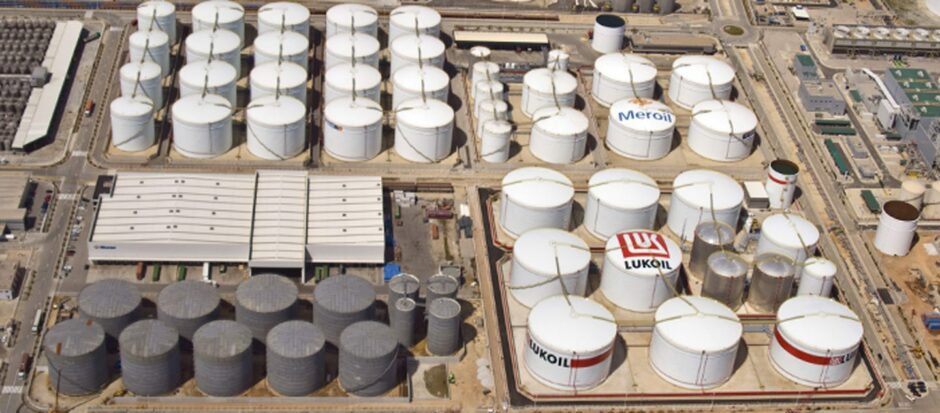
Lukoil is considering splitting its oil-trading unit and selling a refinery in Italy as it seeks to limit the impact of sanctions and a forthcoming European Union embargo on Russian crude.
Russia’s biggest private oil producer may restructure its trading arm, Litasco SA, by creating two arms, with one based in Geneva and the other in Dubai, people familiar with the matter said.
Lukoil, which isn’t itself under EU sanctions, is also exploring the possibility of selling its 300,000 barrel-a-day ISAB refinery in Sicily, said other people with knowledge of that project. The plant has been snapping up Russia’s Urals oil but risks being unable to source the crude once the EU ban on seaborne flows comes into effect on Dec. 5. Lenders have cut off financing that would allow Lukoil to buy other supplies, according to the people.
Representatives for Lukoil didn’t respond to requests for comment, while Litasco declined to comment.
Oil traders depend on credit lines to buy cargoes. Many European firms and banks have already cut their exposure to barrels from Russia for fear of falling foul of sanctions or damaging their reputations following Moscow’s invasion of Ukraine.
East and West
Litasco bought and sold about 4 million barrels of crude and refined fuel a day in 2019, according to its website, making it one of the world’s biggest oil traders.
Under the plan for the trading arm, the Geneva office would be called “Litasco West.” It would continue to source non-Russian crude and run other European refineries in Bulgaria and Romania, as well as maintain a minority stake in the TotalEnergies SE-operated Zeeland facility in the Netherlands.
The Dubai office, known as Litasco Middle East, would be responsible for dealing in Russian barrels and managing Asian operations, including the company’s Singapore office, the people said.
While the Dubai unit would continue to ultimately be owned by Lukoil, it’s unclear if the shareholding of the Geneva arm would change, they said. Switzerland has followed the EU in imposing increasingly stringent restrictions on some commodities, banks and individuals deemed close to the Kremlin.
Litasco has already moved more of its trading business to Dubai, where headcount has swelled to about 40 from 10 before Russia’s invasion.
Dubai has become a top destination for Russian individuals and companies seeking to move abroad. The United Arab Emirates, of which Dubai is the main business hub, has not followed Europe and the US by sanctioning Russia. It’s also attractive due to low taxes.
ISAB, near the town of Syracuse and one of Europe’s largest refineries, has attracted interest from potential buyers including Dubai-based Onex Holding and US fund Crossbridge Energy Partners, said the people.
It’s unclear if either bid is progressing, they said. Onex Holding didn’t immediately respond to requests for comment, while a spokesman for Crossbridge declined to comment.
The Italian government is closely monitoring the refinery situation as the Dec. 5 embargo approaches. ISAB provides about a quarter of Italian fuel products and employs more than 3,000 people directly and indirectly. Still, in March the government said it was not planning to nationalize the plant.